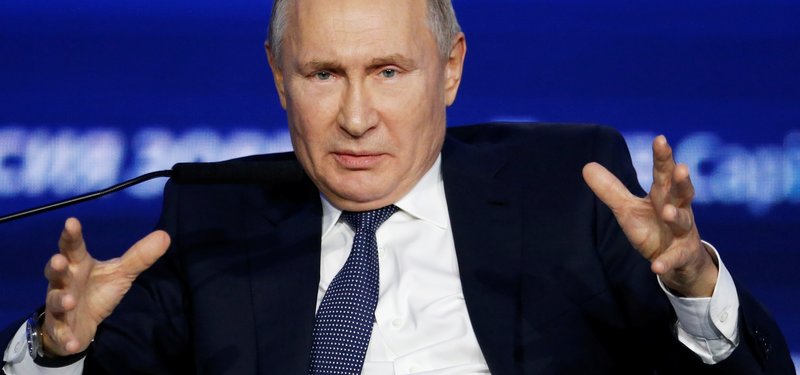
Russian leader Putin predicts more exits from EU by 2028
"At the turn of 2028, some Eastern European countries will reach a level of economic development when they will no longer be recipients of grants and various types of support from the European budget, but will have to pay as the U.K. does. And I'm not sure if they will not have the same thoughts as the U.K. has today [on withdrawal from the EU]," Putin said in his speech as speaking at a plenary meeting of a capital investment forum in Moscow.
- World
- Anadolu Agency
- Published Date: 07:47 | 20 November 2019
- Modified Date: 07:47 | 20 November 2019
Russian President Vladimir Putin claimed that some Eastern European countries can leave the EU by 2028, when they stop receiving donations and grants and start paying them back on Wednesday.
Speaking at a plenary meeting of a capital investment forum in Moscow, Putin compared the EU with former Union of Soviet Socialist Republics (USSR) in terms of economic problems and political administration.
"At the turn of 2028, some Eastern European countries will reach a level of economic development when they will no longer be recipients of grants and various types of support from the European budget, but will have to pay as the U.K. does.
"And I'm not sure if they will not have the same thoughts as the U.K. has today [on withdrawal from the EU]," he said.
There are currently contradictions around the tax allocation in the EU, as the significant part of taxes collected in the advanced countries goes for the support of economically weak states, Putin added.
Responding to a question on whether the crisis that preceded the collapse of the USSR can be compared to the current internal difficulties of the EU, Putin said Russia is interested in preserving its biggest business partner, the EU, because the results of the fall of the Soviet Union were "worse than the most negative expectations".
As for the political administration, the president said the number of decisions adopted by the EU administration and binding all EU countries is higher than the number of decisions taken by the Supreme Soviet of the USSR and binding the Soviet republics.

